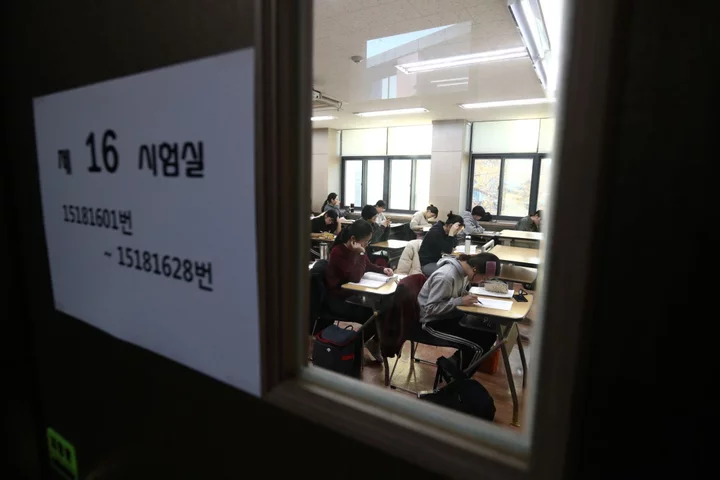South Korea will stop asking “killer questions” on notoriously competitive college entrance exams in an effort to make them more fair.
The Korea Institute for Curriculum and Evaluation — the agency that creates and administers the annual test— will cut the infamous questions that are tough to answer and often not covered at public schools, the Ministry of Education said Monday.
Each year, about 350,000 South Korean high school students take these tests, the equivalent of the US SAT. So-called “killer questions” often favor those whose families can afford expensive and time-consuming private cram schools.
“Including questions that are not covered in the public school curriculum for the college entrance exam is no different than pushing students into private education,” Lee Ju-ho, Minister of Education and deputy prime minister, said Monday in a meeting with ruling party officials.
Under the current system, only private cram schools are making profit while students, parents and public school teachers are suffering, Lee said.
The new guidance, which comes into effect this year, adds to broader debate globally about inequality in the education system. The issue is particularly acute in South Korea where attending a prestigious university is an avenue for landing a career at one of the country’s handful of conglomerate employers.
South Korean high school students often take at least three intensive courses outside of regular full-day classes, including math, Korean and English. As so-called “killer questions” emerged in entrance exams over the past few years, students soon flocked to cram schools that provide sample questions and mock tests to prepare them.
These private schools have faced increased criticism from lawmakers and teachers groups for their high cost. Some cram schools have already voiced criticism of the government’s new policy, saying the announcement will cause confusion for students taking the exam later this year.
Parents often face little choice but to use their services so their kids can get an edge in the exams. Total household expenditures on private education for primary, middle and high school students rose 11% to 26 trillion won ($20.3 billion) in 2022, according to data from Statistics Korea.

